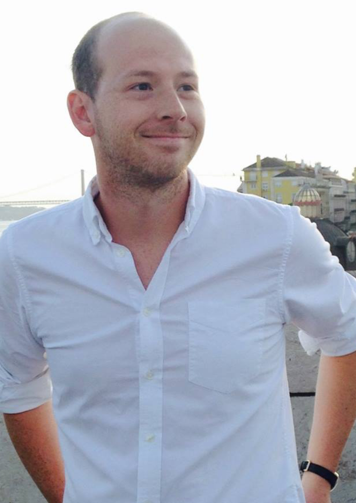Employers and Universities: Work with us?

60 Second Interview: Project Manager
Sam works as a project manager for Lloyds Bank. He tells us what he enjoys about his job, and why putting yourself into challenging situations is important.
Name: Sam

Company: Lloyds Banking Group
Industry: Banking & Finance
What is your job? Project manager
How long have you been doing this job? 7 years with the bank, 2 in my current job
Education
Degree: English language.
A-levels: English Language, sociology, theatre studies
1. What was your very first job?
A morning paper round whilst at high school – I couldn’t ride a bike at the time and so had to pretty much run the route to get everything delivered before school started. It was exhausting!
2. What did you want to do when you were at school?
I desperately wanted to be a music journalist when I was a teenager - getting to write about all my favorite bands and albums seemed like the perfect job.
3. What made you want to do your current job?
I think I wanted to work with different people and get a better idea of how all the different components of the business I worked in all fitted together. Now I’m working with people across a lot of different areas such as IT, Change, Audit, Risk, and Customer Experience — everyone with varying knowledge and expertise.
4. How did you get there?
Initially I reached out to people who did the role, asking questions around what skills and experience are needed to be a project manager, and then looked for opportunities within my existing job that allowed me to develop those capabilities, things like small local projects, deputising for senior management, and shadowing other people who worked within change.
I also approached a senior project ,anager to provide mentor support which I found incredibly helpful. After a relatively short space of time I had the right experience and the right support around me to apply for the job.
5. What is a typical day like?
Generally I’ll spend time with different parts of the business during the early stages of a project, meeting the people that I will be managing within my project team and getting to know the business area that my project relates to. I like to work face-to-face with people as much as I can but that’s not always possible so I’ll generally be on conference calls at various points throughout the day with Business Analysts, IT Developers, and Business Managers making sure all project planning activity is on track - training, communications, IT development, that kind of stuff.
More often than not I’m preparing some kind of report or status update for senior managers or my programme manager, confirming if their projects are green, amber or red. Generally the days are very varied though. Sometimes I’ll need to travel but we try to keep costs down as much as we can and work with people in other sites using conference calls and video chat.
6. What's the best thing about your job?
The diversity – no two projects are the same, you find yourself working with different people all with different knowledge and responsibilities so the work is really varied.
7. What is the most challenging thing about your job?
The bureaucracy that businesses build into their organisations can be a real challenge for a project manager. A seemingly simple change or request for approval can get very complicated very quickly, particularly if there is any degree of risk involved. Over time you get a feel for how it all works though and can often anticipate blockers before they present any problems.
8. What advice do you have for people who want to do what you do?
Shadow someone who works as a project manager for a business, or at the very least, arrange a meeting and find out if it’s actually for you. If you already work within a business then get involved in change at a local level and go from there.
There are also qualifications that you can get independently such as the APM introductory or APMP courses. In terms of skills I’d say you need to be good at communicating with people, listening to the ideas of others as well as sharing your own.
9. What things do you wish you’d known before starting your career?
I think probably the benefits of trying new things and putting yourself into situations that most people would shy away from. Volunteering to deliver presentations to senior directors at executive committee meetings, approaching strangers to ask for advice and mentoring, and signing up for courses and talent programmes have been hugely beneficial in terms of getting me where I want to be and building relationships with the right people.
10. Where would you like to be in five years?
Maybe doing something within Business Improvement Consultancy, these are the people that identify opportunities for customer focused improvements within businesses that eventually turn into the projects that me and my team manage. I’ve worked with some of these teams in previous projects and have found that they work in a really interesting open and honest way, unblinkered by the constraints of systems, businesses and processes.
You might also like...
How to improve your leadership skills for work
How being adaptable can help you at work
Image credits
Main image via Pexels.
